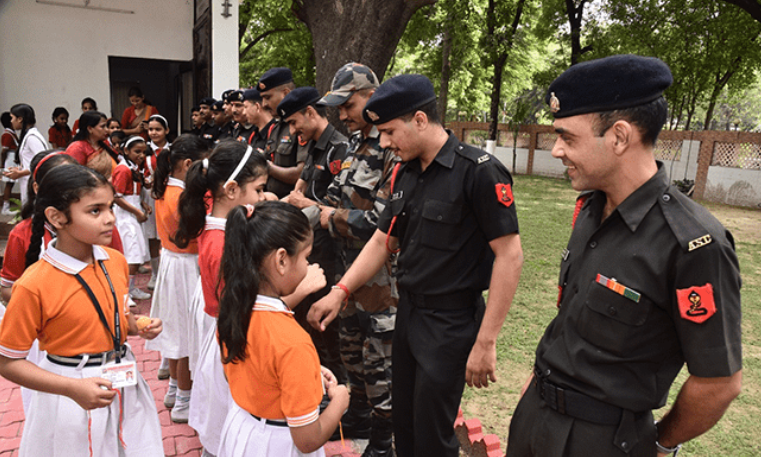Much about Kavi Singh is difficult to believe. It is difficult to believe that she sang for the first time in her life only in 2019 – and has since then recorded over 80 songs with tens more in the pipeline, recorded and waiting to be released. It is also difficult to believe that she is just 25 years old. Her assured tone, her confidence, combined with her somewhat unusual dressing – she is always dressed in a kurta-pyjama set with a Nehru jacket to go and a pagdi, a turban, wrapped around her head – make her seem a lot older than she is.
What isn’t difficult to believe is how seriously Kavi takes her work – she insists that she is on a mission. The mission is to spark “deshbhakti”, patriotism, among Indians who seem to have forgotten traditional values and “desh prem”, love for the country. For Kavi, an important part of that desh prem is to realise, like she has, the biggest threat that the country faces – that of an imminent Islamic demographic takeover. Kavi is convinced that the country’s Muslim population is conspiring to execute a slow, silent coup against Hindus.
Kavi is a Hindutva pop star blazing her way through the country, creating songs that echo some of the core beliefs of Hindu nationalism.
In just four years, Kavi has delivered songs on almost every major talking point among Hindu right-wing circles – from the need to bring a law to control the population,1 thinly veiled as an effort to halt the growth of Muslims in the country, or to warn Hindu girls against “love jihad”: an imagined Islamic strategy to lure them into Islam on the pretext of marriage. Through her work, Kavi shapes narratives by presenting her take on all significant issues of the country’s politics.
She does this without being affiliated with any Hindutva organisations, thereby creating the illusion of her independence from them. But her perspectives do little except push the Hindu nationalist thought further.
For instance, one of her most popular songs, “Dhara 370”, Article 370, hailed the controversial revocation of Jammu and Kashmir’s special status and autonomy granted by the Indian Constitution, likening the occasion to Diwali. The song repeatedly referred to “gaddars”. traitors, and its video showed images of Kashmiri separatist leaders and politicians to coincide with the term. Similarly, just weeks before the Supreme Court was slated to deliver its verdict on the issue, Kavi brought out a song that insisted that a new Ram Mandir, the temple to Lord Ram, would be built on the disputed land over which the Babri Masjid had stood till its demolition in December 1992.
This story was originally published in scroll.in. Read the full story here .






